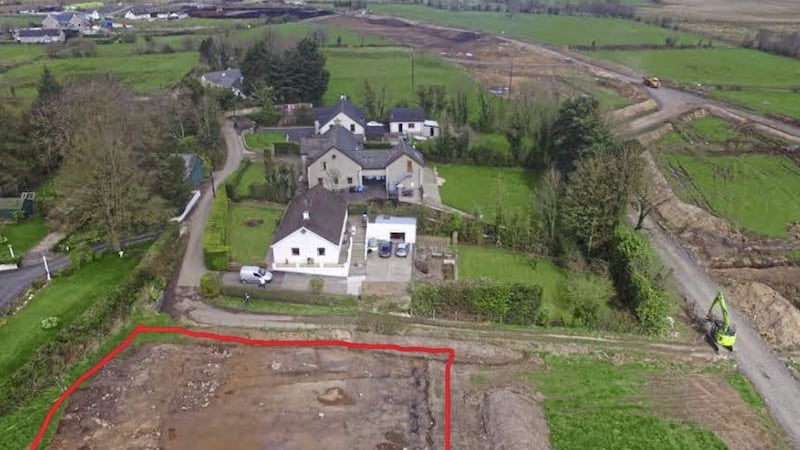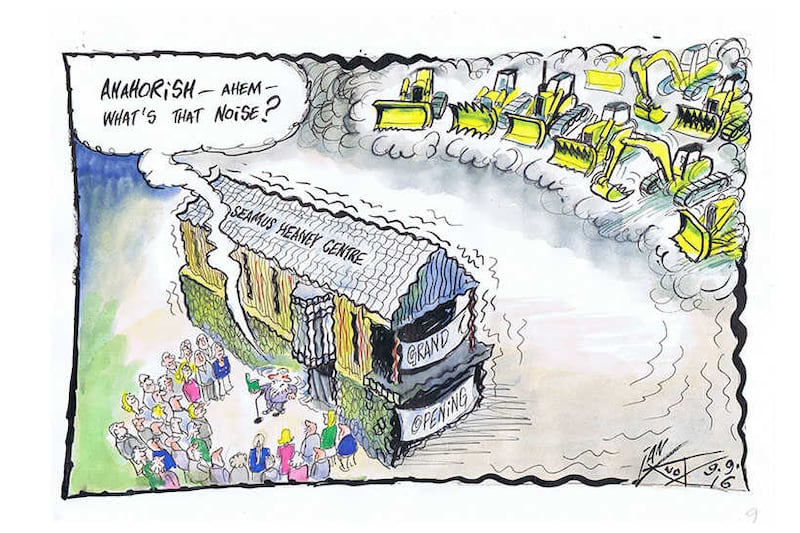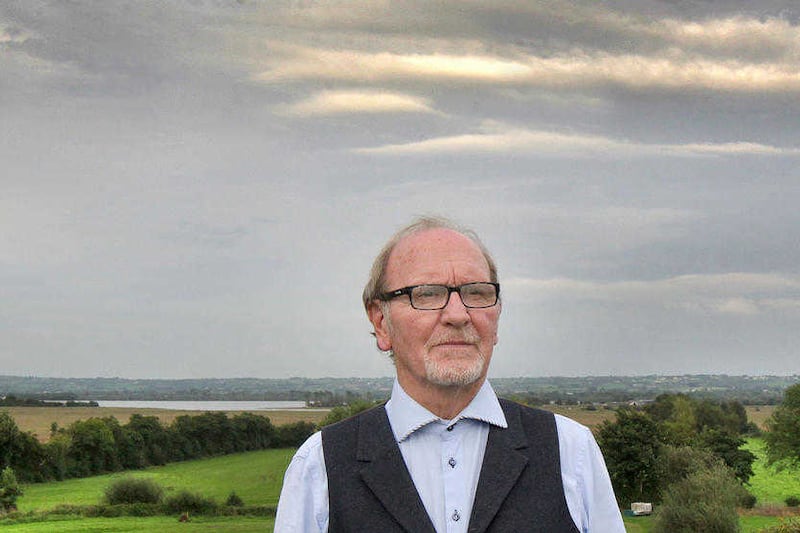Road chiefs have said “nothing of archaeological significance” was found during a dig close to the site of the new A6 road upgrade in Co Derry.
However, people who live close to the planned £160m project say that they have been told that the remains of an old settlement has been discovered in an area known locally as Aughrim Hill.
Locals also say they have been told that the dig site may now be filled in and then quarried for rock to be used in the construction of the new road between Derry and Belfast.
Environmentalists have raised concerns about the potential damage the new road could cause to wildlife in the area, including protected Whooper swans.
The area has featured in the poetry of Seamus Heaney, who also opposed the planned route.
Local man Gerry Donnelly, who lives adjacent to the dig site, has says he has been told that that evidence of a settlement, known as a clachan, was discovered during the recent dig.
The site is close to where what is believed to be a Mesolithic settlement was discovered in 2016.
The Mesolithic period dates between 5,000 - 10,000 years ago in north-west Europe.
Mr Donnelly, who is well known in GAA circles, said: “We would have been perceived as cranky or party poopers but we never meant to be that and we make no apology for defending our rights and the love of the country and the love of the environment and history and everything that is underwritten here,” he said.
A spokesman for the Department for Infrastructure said the contractor “continues to liaise closely with the local community and particularly those residents in close proximity to the works”.
She said that the contractor has carried out “investigatory work” around Aughrim Hill “to determine if there is material that is suitable for use in the construction of the road embankment”.
She added that: “The archaeologists on site have confirmed that nothing of archaeological significance has been identified.








